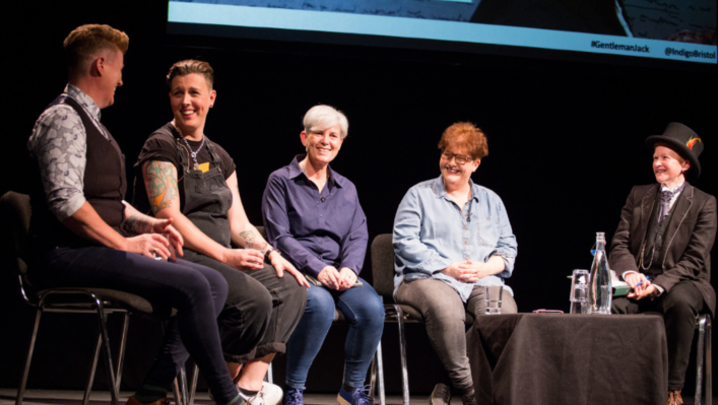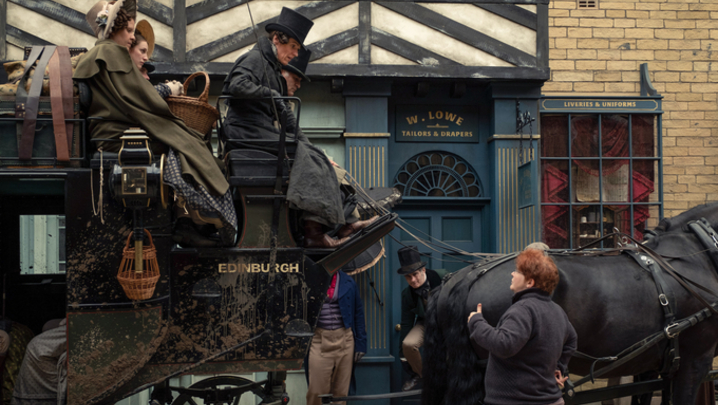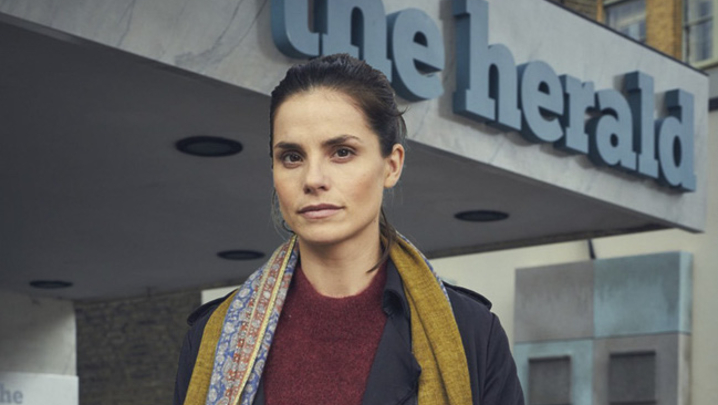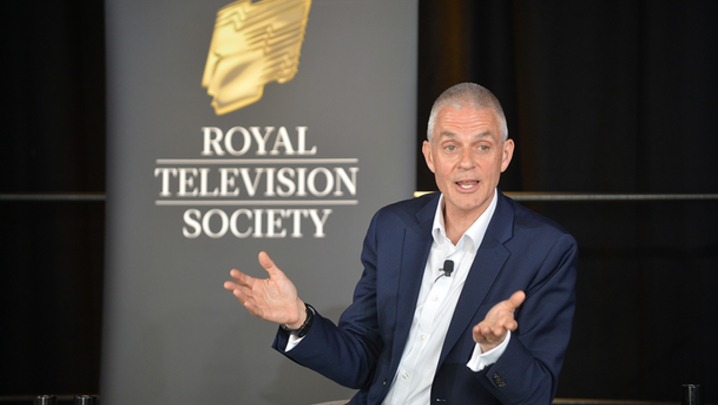Mike Bartlett explains to Caroline Frost why the characters in the Doctor Foster spin-off, Life, are an antidote to social divisions
When Mike Bartlett sent actress Victoria Hamilton the script for his latest television series, Life, she felt a bit confused at first. “I was reading this wonderful character Belle, and I suddenly thought, I know this woman! I emailed Mike and told him she really reminded me of Anna, my character in Doctor Foster. Mike sent me back a very short email, ‘Yes, it is Anna. Anna Belle.’”
And that is how viewers will jump from the claustrophobic, bitter world that Bartlett created for two series of Doctor Foster, to the far broader canvas of Life. The freshly named Belle is one of the main characters. The series follows the lives of the residents of a large house in Manchester divided into four flats.
The good news is that, for the tiny number of drama fans who didn’t tune in for the battles, betrayals and devastating denouement of Doctor Foster, Life offers a completely unique universe that they will understand and enjoy.
There won’t be many of them, of course. Doctor Foster, with the Bafta-winning Suranne Jones at its centre, increasingly batty decision-making by all its protagonists and that dinner party, became must-see viewing for audiences of more of than 10 million by the second series, a phenomenon that surprised even its creator.
“As a writer or showrunner, you like to think you have things within your control but, when that happens, it’s all luck – that people loved the character, in terms of Suranne doing it, that it hit a moment,” Bartlett remembers. “It’s one of the reasons that I wanted to do television, to draw in all sorts of different people, from teenage girls to older men. It was amazing that it happened.”
Why then, out of all the memorable characters he has created, did he choose Anna-turned-Belle to take us all on another dramatic turn?
“In the second series, Anna suddenly says, ‘I’m leaving’, and that surprised me,” he explains. “I thought, who does that? She seemed to be starting a new story and I wondered about a woman in a marriage for 15 years with a big drinking problem, who suddenly breaks out of her marriage and her suburban life and starts again, at that age. What does that mean for her? It left a big question mark that I wanted to explore. That felt like a really exciting story that I wanted to investigate.
“Plus, I wanted to write more for Victoria Hamilton in that part. I’ve worked with her a few times and I wanted to write something she could get her teeth into on-screen.”
The house’s other residents include Alison Steadman as Gail, taking stock of her life on the eve of her 70th birthday in the shadow of her hectoring husband, Henry, played perfectly by Peter Davison. There’s also Adrian Lester as David, happily married to Kelly (Rachael Stirling) but troubled by the attentions of his student Saira (Saira Choudhry). Meanwhile, on the ground floor, Melissa Johns plays heavily pregnant Hannah, navigating the attentions of safe and stable Liam (Joshua James) with the return to the scene of the baby’s father, Andy, played by Calvin Demba.
The idea for such a narrative set-up had been bubbling inside Bartlett for the past three years, inspired by his own experience of living in a divided house in London. “It always amazed me that we were all one stud wall away from each other without really knowing what was going on around us. We’d meet in the corridor and not exchange two words. You don’t know these people, and yet you sort of know everything.”
There are enough twists and surprises in each of the stories to keep a drama fan happy but, for Bartlett, Life is also a way of expressing how he feels about the collapse of modern society and, in some senses, community: “The fact that people still crave it and they still find it, reaching out and helping others.”
Bartlett agrees that the themes of loneliness and the hope of starting over are very strong in the series. “Those, plus our desires and difficulties in reaching out and connecting with each other. I think that sums up life in a city, and life itself. No man is an island and yet we are all islands. That’s the essential challenge of life.”
Since getting his break as a playwright as one of the OId Vic’s New Voices in 2005, Bartlett has enjoyed huge success in theatre, culminating in his Olivier award for King Charles III, subsequently adapted for both radio and television.
His versatility is proved by his credits, which range from King Charles III to an episode of Doctor Who. He still describes himself as a “playwright who dabbles in TV”, although the success of Doctor Foster must surely tempt him to stick with the small screen.
"There’s a huge amount of “snark” on TV at the moment… getting laughs from how awful people can be to each other"
He says not. “For me, it’s always been about starting completely over again. Each piece of work is new, even the second series of Doctor Foster is darker, the scenes longer and the style more intense. I have to approach it like that to keep me interested. I like to think of myself as an artist, and that means doing what you do, and if people go for it, brilliant, but you can only do what feels right.”
Such a philosophy must have helped to deal with the relative lack of acclaim or ratings that came his way for Press, his 2018 BBC One series set in the world of two rival London newspapers gunning for readers, political leaks, celebrity scoops and each other’s staff. Despite such heady fare, Press didn’t pull in a Foster-level audience and was cancelled after one series. Bartlett today remains disappointed but sanguine.
“Rationally, I know that if I said I’m pitching one show about a woman seeking revenge for infidelity and another one based around journalistic procedure, you don’t have to try too hard to work out which one’s going to be a hit.
“I watched a bit of Press recently and I was proud of it. If I did it again, I’d give it more juicy human drama, but, equally, I was trying to make a show about quite a niche world for a very broad audience and, given where TV is at the moment, that’s quite hard to do. I was disappointed that it didn’t find that audience, but that’s the way it goes.”
Life poses no such niche difficulties: a house full of intergenerational residents and their increasingly entangled dramas seems a gift for any writer, but Bartlett explains why, to him, it feels quite radical.
“There’s a huge amount of ‘snark’ on TV at the moment, people getting laughs from how awful people can be to each other, and this is a show that explores the difficult things people are having to face every single day, what that feels like, and to celebrate their strengths and faith in who we are.
“That feels radical because, if you go online, that’s not what you see. There, everyone is polarised, so sure of themselves, putting up amazing photos, and I think that’s not the reality of life. I want to show that real people are brilliant. That wouldn’t have been a political thing to say 20 years ago, but now it is. We can’t keep dividing ourselves from other people. We can be better.”







